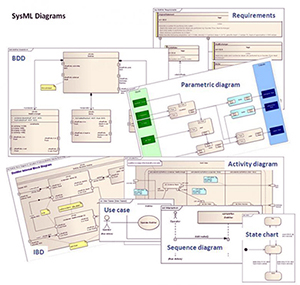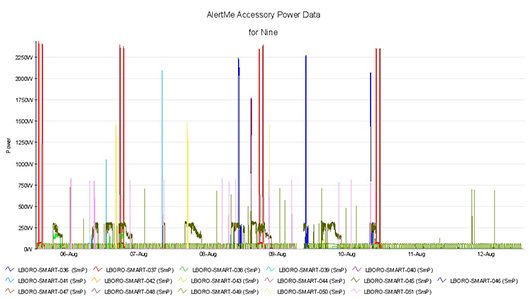Energy

Low Effort Energy Demand Reduction

Summary
LEEDR (Low-Effort Energy Demand Reduction) is a 3.7 year £1.9m project running at Loughborough University. This interdisciplinary project will integrate energy monitoring with design and social anthropological understanding of household energy use. The project will enable the design and evaluation of the next generation intervention strategies that will help the UK towards achieving the 2050 CO2 reduction targets (LEEDR 2010 [www.leedr-project.co.uk]).
Research as part of the AVRRC aims to apply systems engineering tools and technologies to the challenge of providing an understanding of energy usage within a domestic home dwelling with the aim of quantifying the energy wasted. The systems approach will consider the home, its energy profile, users’ and the environment in the content of systems architecture.
Aims & Objectives of the research
The Energy Savings Trust (2009) has completed analysis of surveys that would suggest Britons are the leading domestic energy wasters in Europe. As part of the LEEDR project, it would be beneficial and an important area of research to expand on this area of wasted energy, and use systems based methodologies to provide a clearer analysis of exactly why and how energy is wasted, and how big an impact waste has on overall energy demand.
Project Aims
- Using LEEDR data, create a system architecture of how energy is used within the home using model based systems engineering.
- Using the system architecture, create a number of simulations based on variables that may affect how energy is consumed. The most important simulation will be the affect of weather conditions from seasonal change.
- Compare the simulations with real data, in an effort to develop a projection/predictive mode to explore the impact of future practises on energy consumption.
- Use the simulations to conduct research into the amount of energy wasted by measuring the human activity/presence and the inherent interaction with energy within the LEEDR homes, and drawing comparisons against wider domestic energy consumption.
- Define areas of energy demand within the homes that can reduce energy waste through simple low effort interactions, and consequently develop an appropriate intervention that will implement this interaction.
Research being undertaken
Through the use of wireless monitoring equipment installed in the households, the project aims to have measurements from gas consumption (every 1 second), hot water use (instant measurements), and electrical consumption (every 1 minute) in 20 homes in the Midlands of the UK. The equipment allows for the measurement and analysis of room temperature, and indications of activity through presence monitors. Ethnographic and other human factors techniques are also used to understand the householders’ relationship with energy.
Currently a development is being undertaken of a model-based view of the home energy system, which will enable future energy system architectures to be modelled using SySML.

Further to this, areas of visual analytics are being researched as an effective means of providing key energy feedback to derive an effective intervention.
Results
Early results from energy data provide some interesting insights into participant households within the project. Analysis of key energy categories within households and comparison to ethnographic data, shows a clear lack of correct knowledge by the consumer and a difference in perceived routines and actual energy usage.
Mapping these distinct differences and calculating energy usage trajectory patterns, are fundamental towards developing a systems architecture which can highlight and simulate patterns of energy redundancy and measure potential wasted energy in the home.

Expected Impact
Important analysis over the next year will include modelling and framework of the energy demands within the participants’ households and how this changes throughout the seasons. Although the project only represents a fairly small sample size with regards to the whole of the UK, energy reduction opportunities in real houses are relevant to understand what families are required to do in order to achieve the UK government target of reducing 80% CO2 emissions, 30% based on domestic energy consumption.
